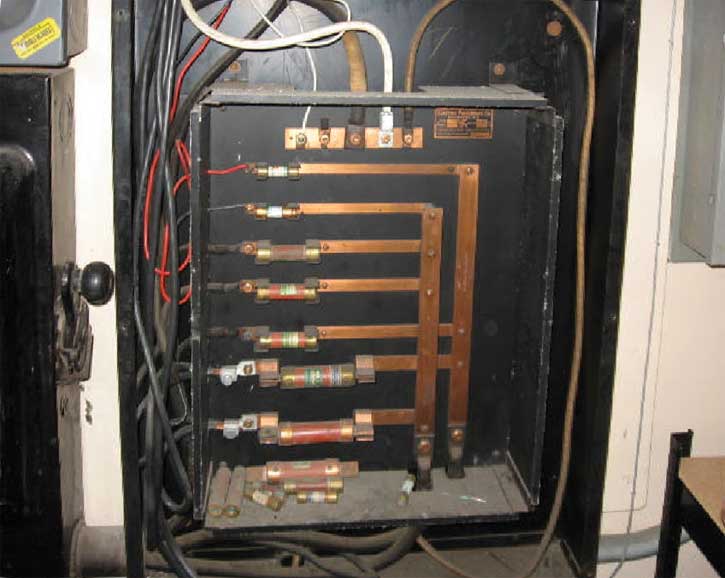Fuse Panels: Should they all be replaced?
By Tom Wurzer, P.E., Warren Engineering
Fuse panels are no longer used in new homes. Fewer and fewer people are familiar with them. As a result, when most people see a fuse panel they immediately think, “That is unsafe and will need to be replaced right-away”.
Most electricians agree that fuses are actually more "fail-safe" than circuit breakers in terms of “blowing” or ”tripping” when they are supposed to, in order to protect the circuit. The problem is that people do not put the correctly sized fuses in the panel (the circuits are “over-fused”), and that creates a safety hazard. If the fuse installed can handle more current than the connected wiring, the wiring could overheat in an overload condition and potentially lead to a fire.

Circuits usually become “over-fused” when a fuse keeps blowing. Occupants figure out that if they put in a higher-amperage fuse, it will not blow as much. Unfortunately, this is not the right way to handle the problem. Usually the circuit needs to be split into multiple circuits, in order to reduce the electrical load on the fuse.

Fuse panels come in all different sizes and shapes. However, most of the residential panels are typically small and do not accommodate enough fused circuits for the modern needs of homes. As circuits get added, more space is needed. As a result, most fuse panels are surrounded by additional fuse panels or small circuit breaker panels referred to as sub-panels.

When inspecting fuse panels, we remove the covers and check that the wire sizes match the fuse sizes (i.e. 14 gauge wires have 15 amp fuses, 12 gauge have 20 amp, 10 gauge have 30 amp, etc.). It is a common occurrence is to find several green screw-in fuses (30 amp) connected to relatively small wires. If you see a lot of green fuses when first looking at a fuse panel, there is a good chance that several of the circuits are “over-fused”, creating a potentially unsafe condition.
Although fuse panels can be used safely if properly sized fuses are installed, most electricians will recommend upgrading the panels to a modern circuit breaker panel if any electrical work is undertaken in the home. Unless the panel is an unusually large fuse panel that accommodates many circuits, most people should budget to replace their fuse panels to allow room for more circuits. Prior to replacement, owners should at least ensure that the properly sized fuses are installed, for safety.